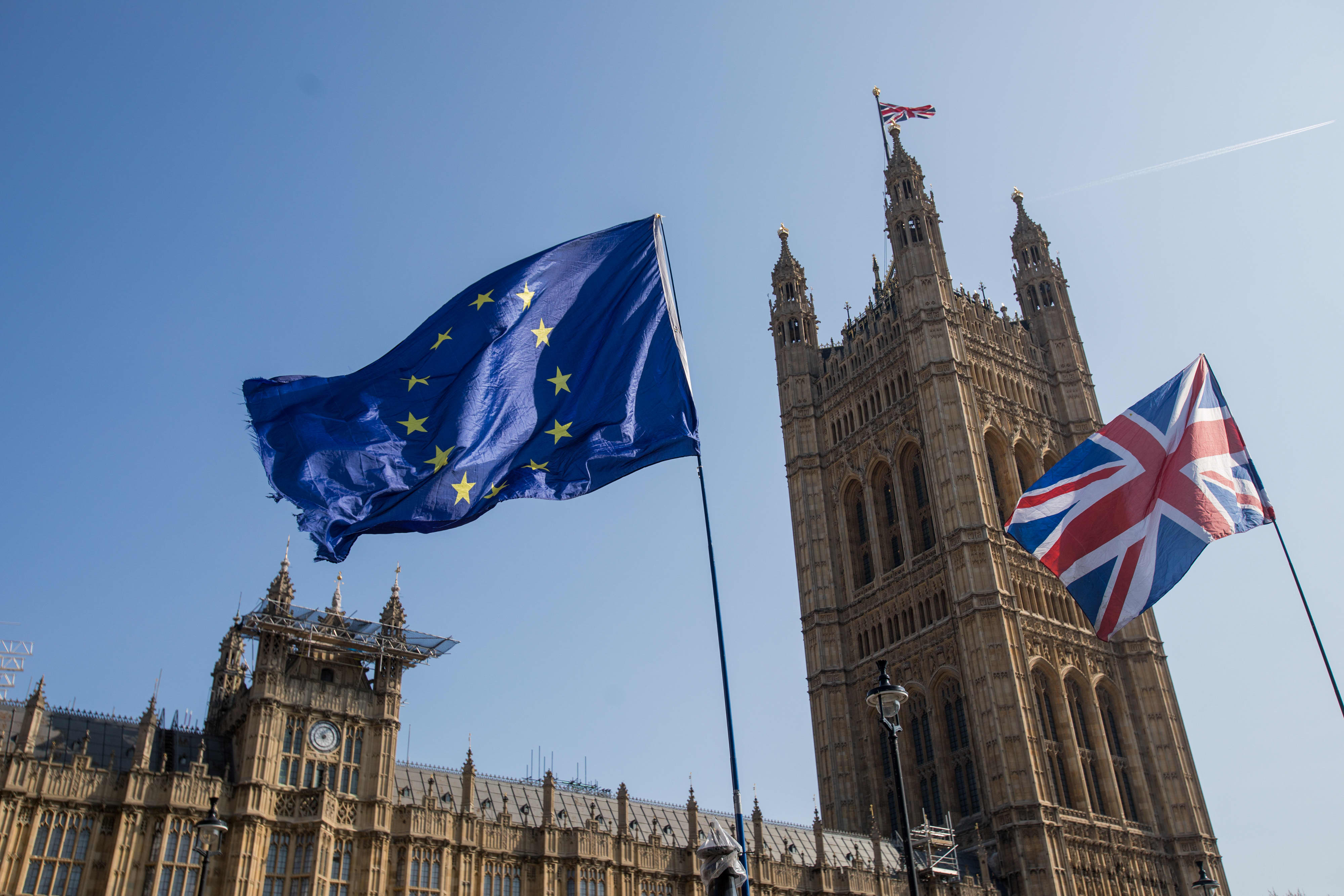
A European Union (EU) flies alongside a British Union flag, also known as a Union Jack in London.
Jason Alden | Bloomberg Creative Photos | Getty Images
LONDON — The United Kingdom and the European Union are due to enter new negotiations on Friday in an attempt to avoid a looming trade war.
The U.K. officially left the EU in January 2020 and since then a number of new trade arrangements have come into place. However, the agreements now look to be under threat as the U.K. complains about difficulties in implementing the required checks on goods moving from Great Britain to Northern Ireland.
The nature of this border post-Brexit has been a major sticking point in negotiations between the U.K. government and the European Union. Great Britain includes England, Scotland and Wales, but not Northern Ireland; Northern Ireland is, however, part of the U.K.
The European Commission, the executive arm of the EU, proposed last month to adapt certain parts of the trade deal in an effort to make it easier for these checks to take place. But EU officials have since complained that the government of U.K. Prime Minister Boris Johnson is not showing a willingness to negotiate.
Political analysts have warned that this standoff could drag on for several months.
A Commission official, who did not want to be named due to the sensitivity of the negotiations, said Thursday that its proposals mark “a significant difference” from the original trade deal.
“Northern Ireland deserves stability and certainty, and we are ready to work around the clock to achieve this,” the official said. “The U.K. must take a step towards us to make sure the talks are meaningful.”
There are, however, significant differences in how the EU and U.K. are looking to solve the problem.
U.K. Brexit Minister David Frost said that all checks on goods moving from Great Britain to Northern Ireland should come to an end. Instead, he thinks authorities should trust businesses to inform them if products will stay in Northern Ireland or continue to the Republic of Ireland — which is European territory.
Businesses have to fill different forms depending on whether goods will enter the European market or not.
However the European Commission says they cannot trust companies to keep them informed about trade flows. “What … doesn’t work is to wait for traders to tell us,” the unnamed Commission official said. “We believe we need data to track that.”
The Commission says it does want to significantly reduce the amount of paperwork that businesses need to fill when moving goods from Great Britain to Northern Ireland. Ultimately though, Brussels is worried that products that do not meet European standards could end up entering the EU’s single market via Northern Ireland.
Another issue is that the U.K. wants to end the jurisdiction of the European Court of Justice over how their trade deal works. But the EU is not budging on this one.
Tearing it all apart?
Amid this standoff, Frost has threatened to trigger so-called Article 16 — this would lead to the suspension of part of the current trade agreement on the basis that it is causing “economic, societal, or environmental difficulties.”
He said Wednesday that triggering this article would be the “only option” if negotiations with the EU fail.
The EU, for its part, has warned that it would retaliate in this scenario, which could lead to no trade deal — and a trade war.
“Senior EU officials in Brussels, but also across the continent’s 27 capitals, are extremely gloomy about the outlook and believe escalation in the form of a trade war — probably early in the new year — is now almost unavoidable,” analysts at consultancy group Eurasia said in a note Tuesday.




